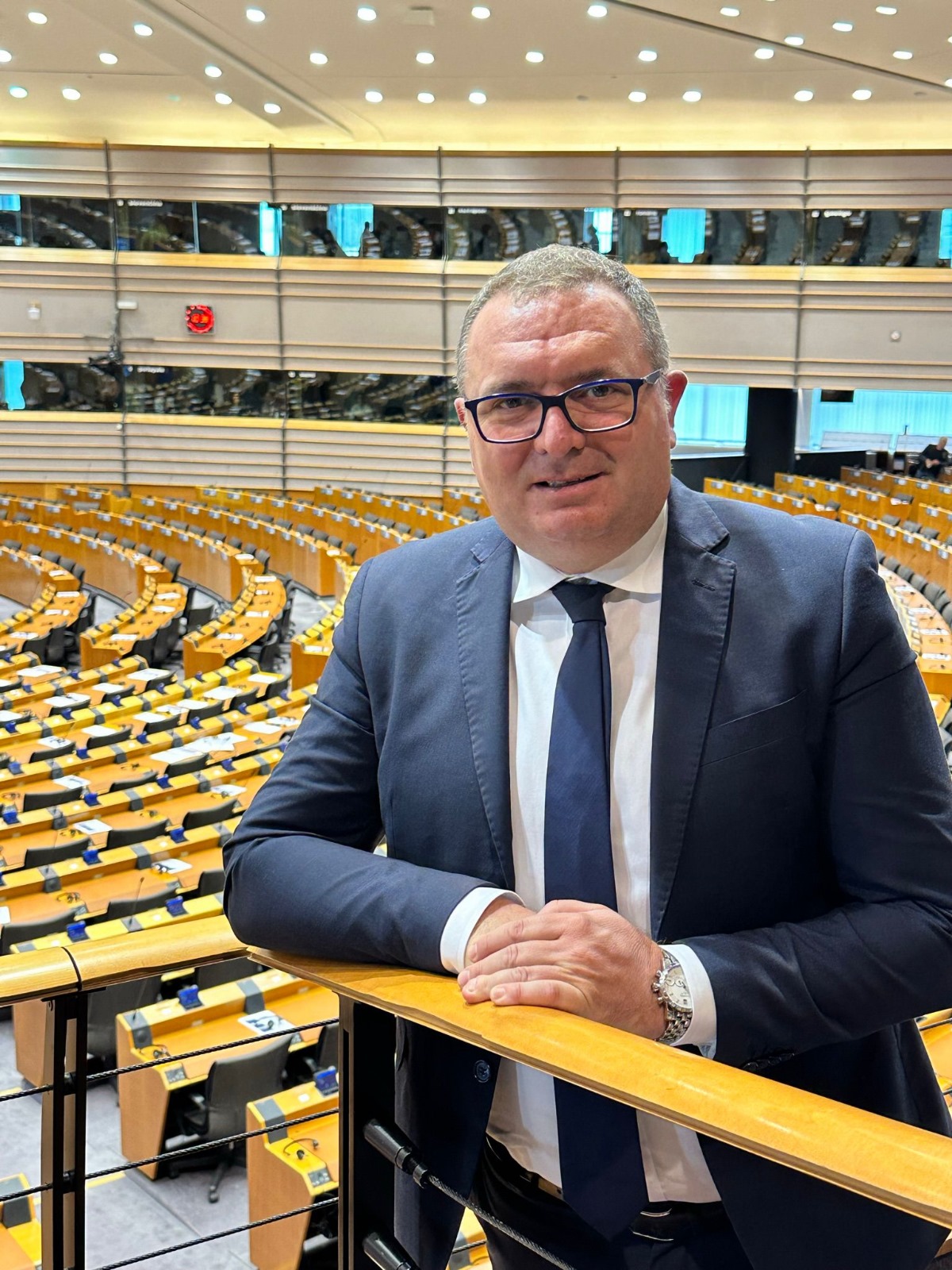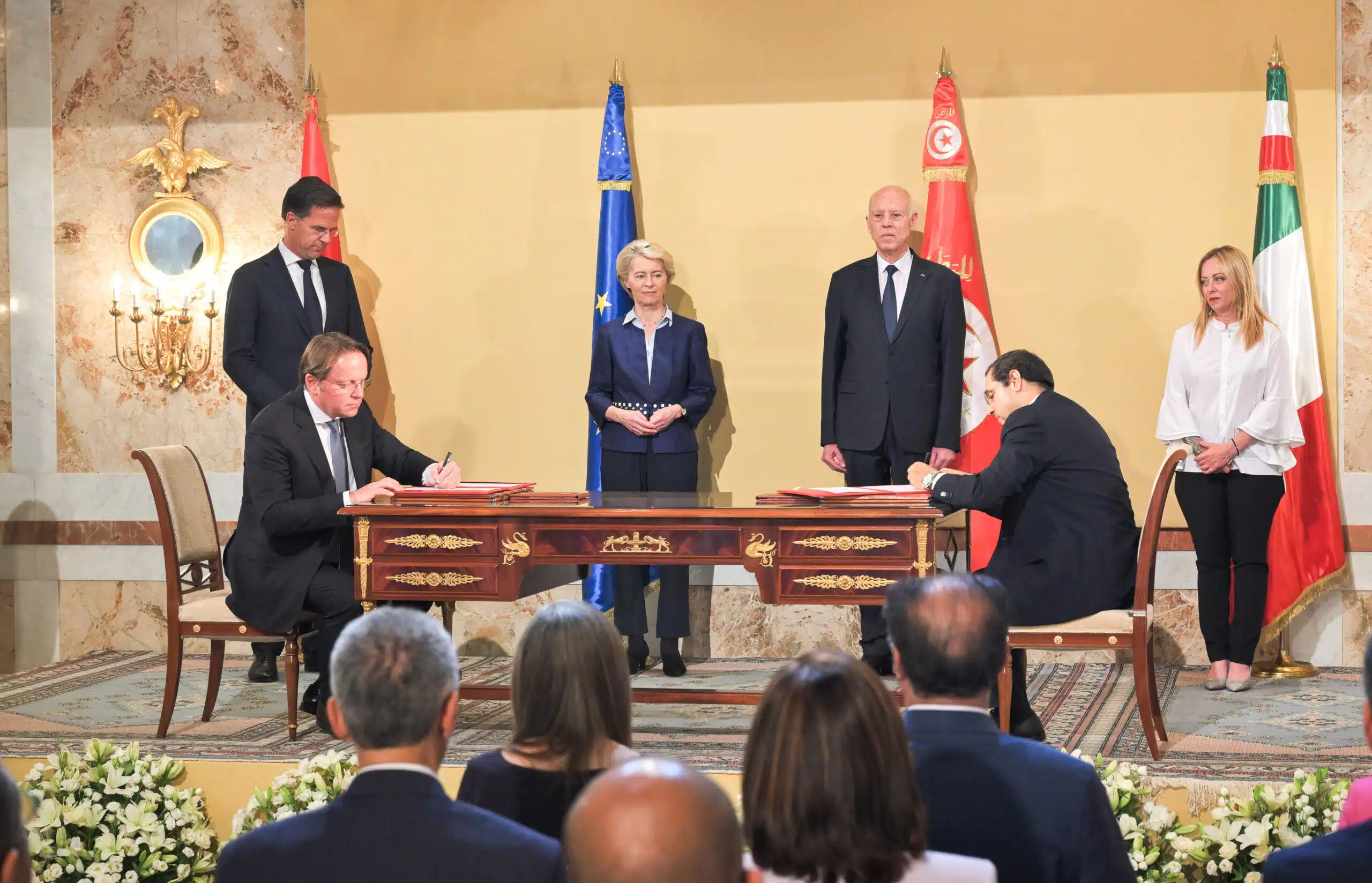BRUSSELS – In the EU capital, all eyes are on the increasingly complicated process of forming the new College of European Commissioners, which is expected to close with a vote by the EU Parliament in its plenary session Nov. 26–28. However, the following month, the Strasbourg Chamber will be called upon to vote on the leadership of another institution. Among the six candidates vying to succeed Irish Emily O’Reilly in the role of European Ombudsman, there are also two Italians: Emilio De Capitani and Marino Fardelli.
Established by the treaties and in office since 1995, the European Ombudsman is the figure who deals primarily with cases of maladministration involving other EU bodies and institutions. More broadly, he watches over accountability and transparency in the control rooms of the European capital. The Ombudsman, elected by the European Parliament, is empowered to set up independent investigations but has no sanctioning powers. As it has repeatedly done in recent years O’Reilly, from the Qatargate scandal to the controversial EU-Tunisia Memorandum of Understanding via the work of the EU Border and Coast Guard Agency (Frontex), it can nevertheless make recommendations with some political impact.
By the October 30 deadline, only six would-be Ombudsmen managed to collect the 39 signatures of MEPs from at least two member countries needed for official candidacy. Portugal’s Teresa Anjinho, former Deputy Attorney General for Justice in Lisbon and a member of the Supervisory Committee of the European Anti-Fraud Office (OLAF), former Estonian Supreme Court Justice Julia Laffranque, the Ombudsman of the Netherlands Reinier van Zutphen, the Austrian academic independent expert at the UN Human Rights Council Claudia Mahler, and the two Italians, De Capitani and Fardelli, who come from two very different backgrounds. The former, a lawyer and academic with a long career as an official in the European Parliament, the latter a councillor—at first local and then regional—in Lazio, since 2021, Ombudsman of the Lazio region and President of the National Network of Ombudsmen of Italian regions. All six are due to attend a hearing at the EU Parliaments’s Petitions Committee (PETI) on December 3, the last and crucial step before the final vote in the plenary session from December 15 to 18.

Before that appointment, De Capitani is preparing a kind of political manifesto. “If I am elected or not, at least I am sending the message,” he declares to Eunews. The former executive of the European Parliament’s Civil Liberties Commission (LIBE) secretariat from 1998 to 2011 will leverage his deep knowledge of the European machine: “I’ve been working there for 40 years, I know its meanderings and I’ve followed its evolution.” What moved De Capitani to run for office is, more than anything else, the battle for transparency, “the best system to protect the decision-making process.” The figure from which he starts is glaring: “Thirty per cent of the cases raised by the Ombudsman concern problems of access to documents.”
For De Capitani, the key lies in fully “valuing” the 60,000 or so officials of the European institutions. “If I were appointed, the first thing I would do would be seek out officials, create workshops to exchange good practices“, and foster a real culture of transparency. What the EU Ombudsman lacks today is also a major role in the standard-setting process: in addition to investigating instances of maladministration, “he could also make suggestions for doing good administration,” De Capitani further suggests.

Reached by Eunews, the Lazio Ombudsman also indicates his mission: “To build a Europe that is even closer to citizens, fair and transparent.” For Marino Fardelli, the emphasis is mainly on the first term: the need to bring citizens closer to an institution that is there to protect them. “In my proposal, I emphasize communication, that is, conveying the message of the EU Ombudsman not only to stakeholders but to all citizens.” Especially the younger ones, as Fardelli is already committed to a project with the Lazio schools named “The Ombudsman on the school desks”.








